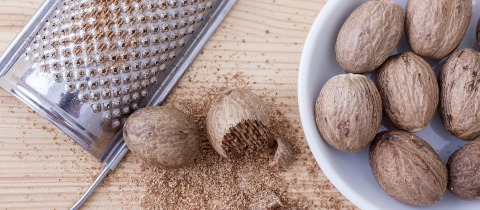It’s minty, chalky, unpleasantly viscous, and useful for a wide range of stomach ailments, but why is Pepto-Bismol so vibrantly pink?
The active ingredient in Pepto is bismuth subsalicylate. Once in the stomach, bismuth subsalicylate breaks down into two products—bismuth and salicylic acid—the latter of which is rapidly absorbed into the bloodstream. Salicylic acid is the active ingredient in many anti-acne and wart products and is closely related to acetylsalicylic acid, better known as Aspirin. Bismuth is a metal with somewhat unique properties, including notably its low melting point of just 271.5 ˚C. As such, it finds use as a lead replacement in various contexts. One important one is in lead bullets, the use of which has been highly discouraged, or even outlawed in some places, due to its toxicity. If you have a free day, a bottle of bismuth subsalicylate and some laboratory equipment, you can even extract the bismuth from Pepto-Bismol—it’s iridescent and quite pretty!
Bismuth in the stomach is very poorly absorbed and combines with other compounds present to form various bismuth salts. These salts have antimicrobial activity and prevent bacteria from binding and growing on the mucosal cells of the stomach, as well as increasing fluid reabsorption and decreasing intestinal secretions and inflammation. In these ways, bismuth subsalicylate can help with a wide range of digestive issues, including nausea, diarrhea, stomach ulcers, heartburn, and even cholera.
Contrary to what you may be thinking, it is not bismuth subsalicylate that gives Pepto-Bismol its carnation colouring. That compound is beige. It turns out that Pepto is pink simply because Procter and Gamble dye it pink!
According to Pepto-Bismol, the doctor who developed their pink medicine in the early 20th century chose pink, but no one really knows why. They keep it pink because you don’t mess with success, and who can blame them? The practically neon hue of their product is instantly recognizable, even when their products are in chewable tablet or pill form. Even generic preparations of bismuth subsalicylate tend to stick to the pink colour palette.
In 1992, a Procter and Gamble spokesperson told the LA Times that the doctor chose pink to appeal to children, but as Pepto-Bismol is not recommended for kids under 12, that seems questionable. This recommendation is due to concerns that bismuth subsalicylate could contribute to a rare condition called Reyes syndrome in children. It’s for this exact reason that Aspirin (acetylsalicylic acid) is not approved for children under 12.
You shouldn’t worry about Pepto-Bismol turning you pink, but there is a slight chance it could turn your tongue, or your poop, dark black. This happens due to a reaction between the bismuth metal and sulfur in your mouth or digestive tract, producing bismuth sulfide. This might happen if you’ve recently eaten a lot of sulfur-rich foods—like cruciferous vegetables (broccoli, cabbage, kale etc.) or alliums (onions, garlic, leeks, etc.)—taken a high dose of a sulfur-containing medication (like sulfonamide antibiotics) or live somewhere with high sulfur concentrations in the water. Don’t panic; it’s only temporary and totally benign.
While the doctor who developed Pepto-Bismol and chose its hot pink shade probably didn’t know, the colour of a medication may have surprising impacts on how patients perceive its effects or rate its effectiveness. A couple of studies have found that patients are more likely to perceive warmly coloured medications (red/orange/pink/etc.) as stimulants or antidepressant drugs versus an association with tranquillizers or depressants for cool-coloured (blue/purple/green) meds.
When studied, the marketing of medications echoes this colour coding, implying a feedback loop between buying medications of a particular colour and associating that colour with that type of medication. Interestingly, studies have also shown that the colour of a drug can influence how bitter patients think it will taste and how strong they believe it is. Specifically for children, there’s a belief that red or pink medications make them look sweeter or more palatable to kids. So maybe the inventor of Pepto-Bismol was trying to invoke the idea of a strawberry milkshake!







